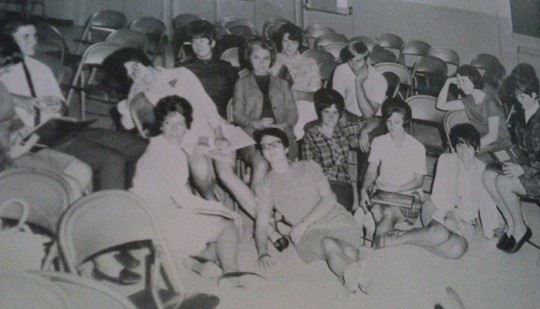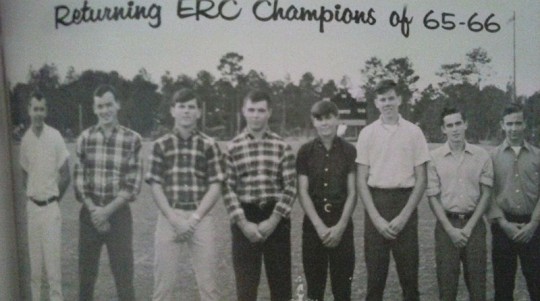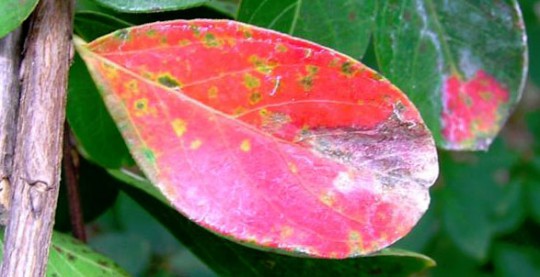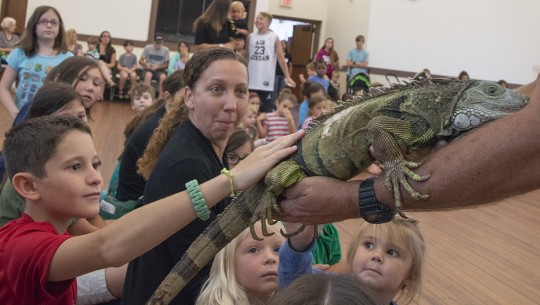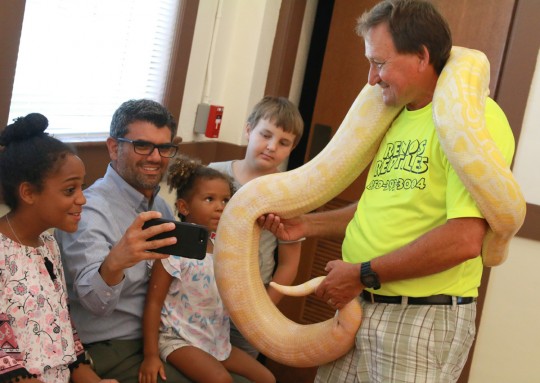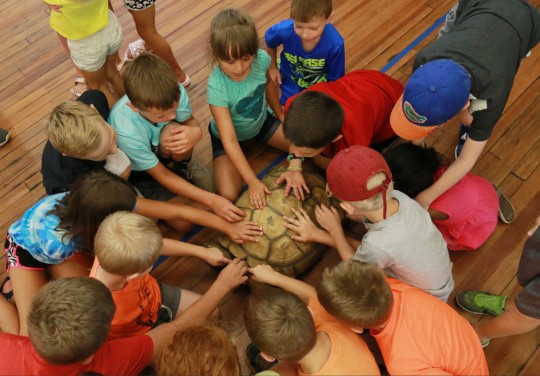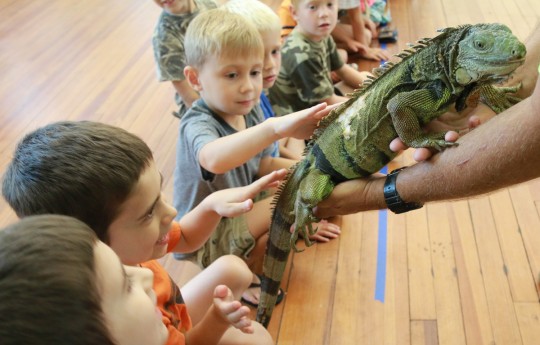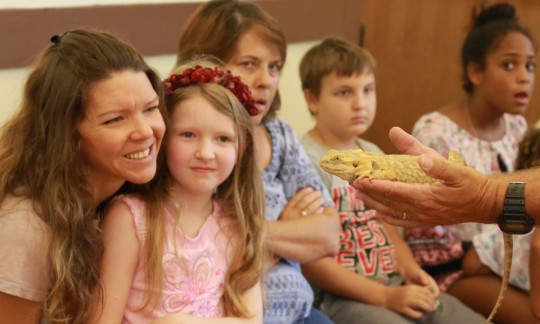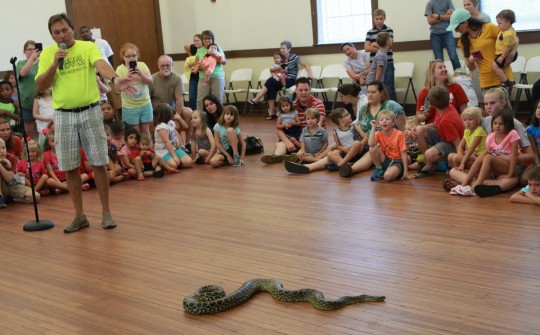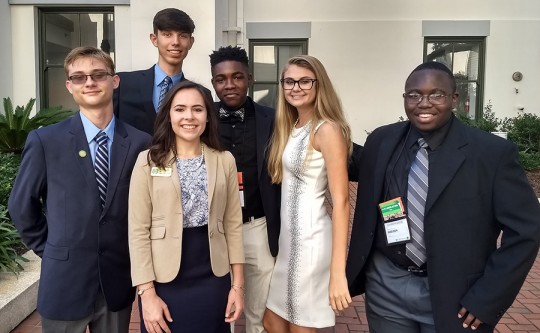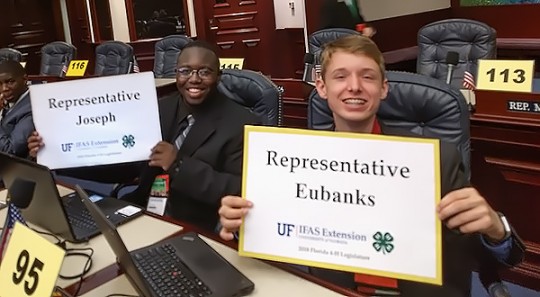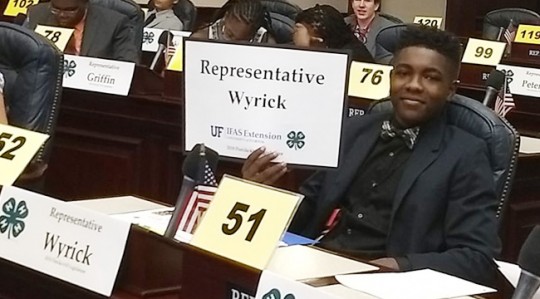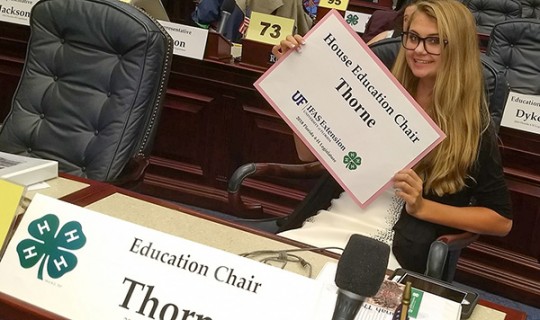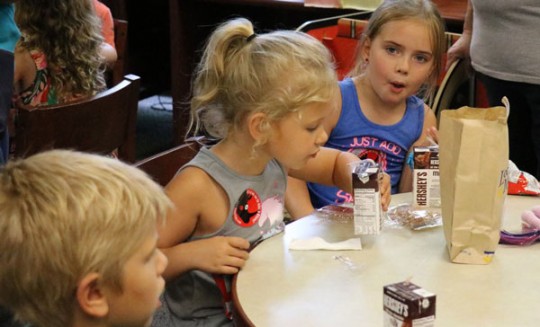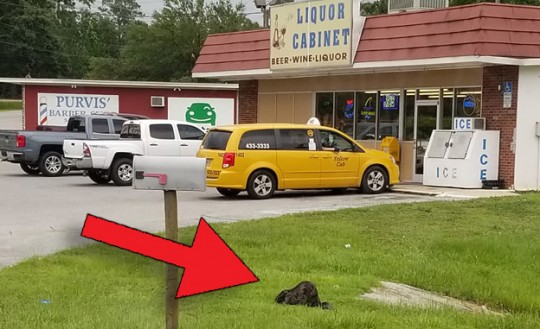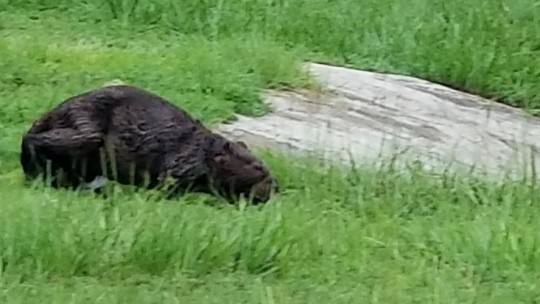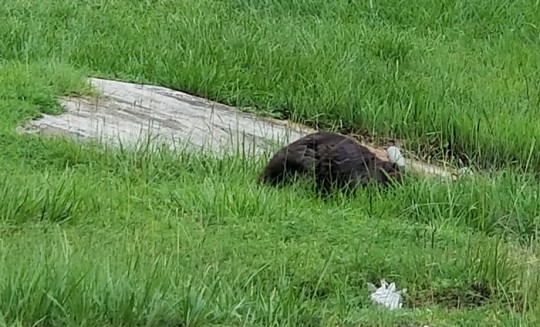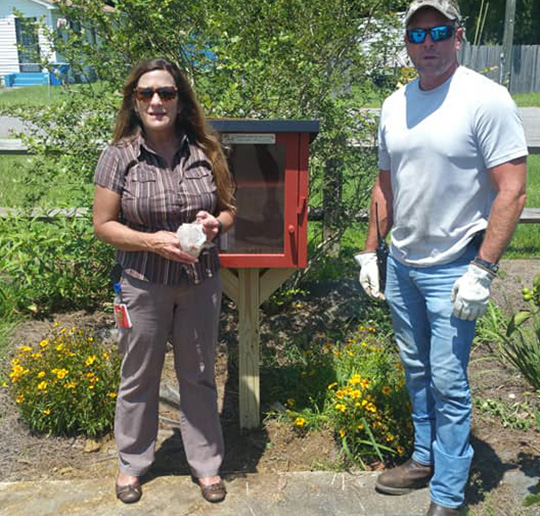Ernest Ward High 50-Year Multi-Class Reunion Scheduled
July 16, 2018
The Ernest Ward High School Class of 1968 will host a multi-class reunion for the classes of 1967, 1968 and 1969 on Saturday, August 4, at the Walnut Hill Ruritan Club building at 7 p.m.
To RSVP or for more information, call Karen (Pitts) Brown 850-327-4523, Brenda (Clark) Berry 850-327-6435, Renee’ (Blanton) Godwin (850) 327-6757 or Mike Hanks (251) 368-4660.
Weekend Gardening: Spots On Your Crape Myrtles Can Be A Problem
July 14, 2018
by UF/IFAS Extension Service
As the heat and humidity increases in Northwest Florida, expect to see some diseases appear in the landscape. One problem that is popping up on crape myrtles is Cercospora leaf spot. While not a deadly problem, it can greatly detract from the beauty of crape myrtles.
The initial symptom on crape myrtles is the appearance of tan to dark brown spots randomly scattered on yellow to red discolored leaves. The spots develop first on the lower leaves and progress upward in the canopy. Spots will continue to develop from mid-summer through fall. The color change is due to the production of a toxin by the fungal pathogen.
Infected leaves will drop prematurely and serve as a source to spread the pathogen causing further disease development. As the summer progresses, many infected trees will have dropped all but the newest leaves.
Older varieties of crape myrtles are more susceptible to this disease than newer varieties. The crape myrtle varieties most tolerant to Cercospora leaf spot are Natchez, Muskogee, Basham’s Party Pink, Sioux and Tonto.
Long term, this disease is not detrimental to a tree, although it will slow down growth on younger plants. Plants growing in conditions that are not ideal will be more affected by the leaf spot disease.
The best control is selecting a planting site with good air circulation so that the foliage will dry quickly. Thinning interior branches will also promote air flow.
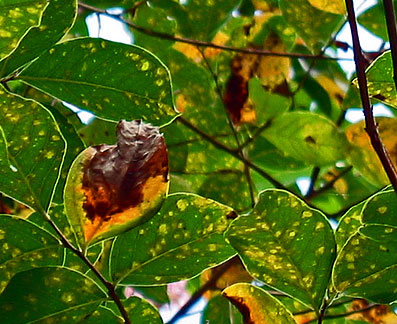 The use of fungicides to control this disease has not been very effective because they would have to be applied repeatedly on a regular basis throughout the growing season. If used, fungicide applications should be started in early summer when the spots are first noticed and continued at one to two week intervals when the weather is warm and wet. Consult your local Extension office for fungicide recommendations.
The use of fungicides to control this disease has not been very effective because they would have to be applied repeatedly on a regular basis throughout the growing season. If used, fungicide applications should be started in early summer when the spots are first noticed and continued at one to two week intervals when the weather is warm and wet. Consult your local Extension office for fungicide recommendations.
As always, be sure to read and follow all label directions. Fungicides can be classified by how they work on the fungus or how they work on the plant. Products that work in a similar way on fungi have the same mode of action (also referred to as chemical family or class).
Contact fungicides are sprayed onto plants and act as a protective barrier from pathogen infection. They prevent infections from occurring when applied before symptoms are visible, but infections that have already occurred will continue to develop.
Systemic fungicides move into the plant, but movement inside the plant is limited. The vast majority of fungicides only move upward in the plant vasculature, but not down. Some fungicides only move locally into the plant part treated. Some systemic products exhibit curative action, which means the disease is stopped during its development. For managing fungicide resistance, products with different modes of action should be used in rotations.
Since this disease will result in early defoliation or the loss of leaves, it is critical to practice good sanitation. Raking and destroying fallen leaves should be a routine practice in order to prevent the spread of the disease.
Reptiles Please Young Readers At The Molino Library (With Photo Gallery)
July 13, 2018
Participants in the West Florida Library’s Summer Reading Program had a chance to get up close and personal with slithery snakes, iguanas, turtles, spiders and more Thursday morning at the Molino Branch Library with Reno’s Reptiles.
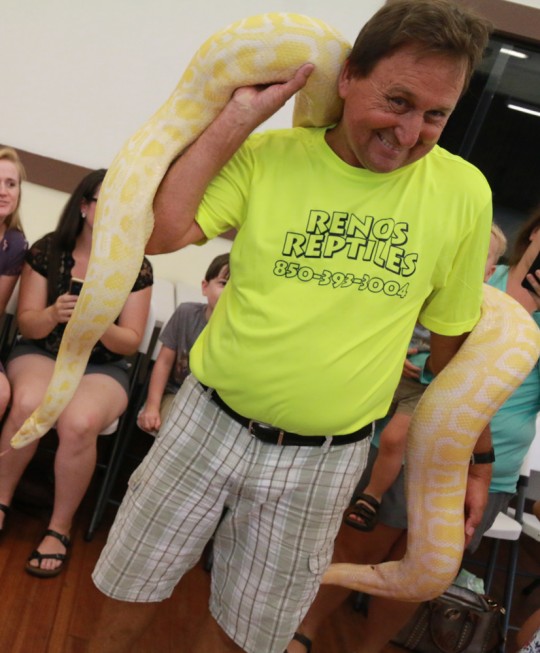 The Summer Reading Program continues next week with Bucky And Gigi – former professional circus clowns — at 11 a.m. Wednesday at the Century Branch Library and 11 a.m. Thursday at the Molino Branch Library.
The Summer Reading Program continues next week with Bucky And Gigi – former professional circus clowns — at 11 a.m. Wednesday at the Century Branch Library and 11 a.m. Thursday at the Molino Branch Library.
For a NorthEscambia.com photo gallery from the Molino reptile visit, click here.
NorthEscambia.com, click to enlarge.
Blue Angels Weekend: Everything You Need To Know
July 12, 2018
The Blue Angels are ready to take to the skies for the Pensacola Beach Air Show. Remember, no kites or drones are allowed to fly during the show. Be sure to follow these tips from Escambia County for a safe, fun weekend in the sun.
Traffic
- Leave early. Traffic will be heavy, and parking is limited on Pensacola Beach.
- Leave your car in Pensacola and take ride on a new ferry to the show! Special pricing is available July 13 and 14 with departure times to and from the downtown Pensacola dock to Quietwater Beach and Ft. Pickens, starting at 7 a.m. Click here for more details.
- If parking is full in the core areas, take advantage of the free Pensacola Beach trolleys offered by the Santa Rosa Island Authority. East and west parking lots will be serviced by trolleys and will take beach goers to and from Casino Beach. Service to the east parking lot will run on Saturday only. For a map of trolley stops and a live trolley tracker, click here.
- Remember that access into and exiting the Casino Beach parking lot along Via De Luna Drive and Fort Pickens Road has been modified. The parking lot now functions in a circular configuration, with one way in and one way out. The only entrance into the parking lot is along Via De Luna Drive next to Sidelines Sports Bar & Restaurant and across the street from Flounder’s Chowder House. The only exit from the parking lot is along Fort Pickens Road near the public restrooms/Public Safety Building. To see the specific entry and exit routes along with additional traffic tips, click here.
- Be on the lookout for pedestrians and bicycles sharing the roads. Florida law requires vehicles to stop for pedestrians on a crosswalk. Remember to give cyclists at least three feet of clearance.
Water Safety
- Be sure to wear and reapply sunscreen often and drink plenty of water. Remember that alcohol, sun and swimming do not mix.
- Swim in lifeguarded areas, and be sure to follow all lifeguard instructions. Swimmers will not be allowed in the Gulf during the airshow.
- Check before you go and follow the posted beach condition flag warnings. Watch our lifeguards explain the flag system on Pensacola Beach. Beach conditions can be checked at PensacolaBeachLifeguards.com and on the Pensacola Beach Lifeguards Facebook page.
- Know how to escape from a rip current. Watch our rip current video and learn how to break the grip of the rip, which can pull even the strongest swimmer out to sea.
Beach Rules
- Remember to “leave no trace” and keep Pensacola Beach sea turtle-friendly. Properly dispose of trash, fill in any holes in the sand and remove belongings from the beach at the end of the day. This includes not leaving any personal property unattended on the sandy gulf beach from sunset until sunrise like umbrellas, tents, beach toys and chairs. To view the Leave No Trace ordinance, click here.
- Follow all Pensacola Beach rules, including:
- Glass containers are not allowed on the beach.
- The west side of the Pensacola Beach Gulf Pier is an alcohol free zone.
- Open containers are not allowed off the boardwalk or outside any establishment.
- Open flames or grills are not allowed on the beach except in the publicly provided park facilities.
- Walking on the dunes and sea oats is not permitted.
- Dogs other than service animals are not permitted on the any of the beaches except in designated dog parks. To view complete rules and boundaries for Pensacola Beach dog parks, click here.
Credit Report Freezes Are Now Free In Florida
July 9, 2018
The Credit Report Freeze Bill that was signed into law in Florida in March is went into effect July 1. It eliminates the $10 fee that credit reporting agencies were charging to freeze their credit.
A credit freeze prevents access to your credit report, which makes it more difficult for scammers to open credit lines in your name. The law also removed the paperwork requirements for victims of identity theft to freeze their credit without a fee.
“Protecting consumers’ hard-earned money from criminals is a top priority, and this legislation that removes the fee to freeze credit reports makes it easier for consumers to protect themselves from fraud,” said Commissioner of Agriculture Adam H. Putnam.
Local 4-H Members Take Part In Mock Legislative Session
July 8, 2018
Escambia County 4-H members recently took part in a mock legislative session at the Florida State Capitol.
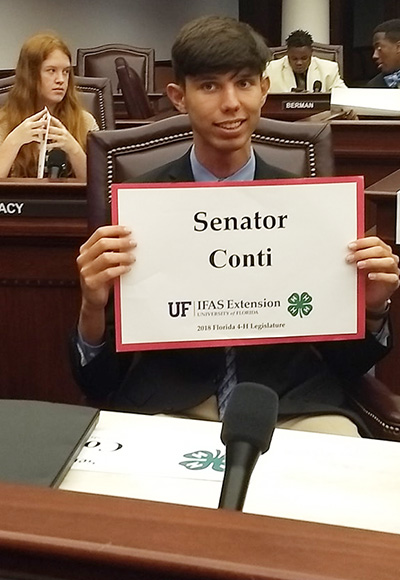 The civic education event allowed students to write bills, act as lobbyists, pass the bills through various committees and debate the potential laws on the Capitol House and/or Senate Floor as acting representatives and senators. The event provided the 4-H’ers an opportunity to debate issues and experience the legislative process first-hand.
The civic education event allowed students to write bills, act as lobbyists, pass the bills through various committees and debate the potential laws on the Capitol House and/or Senate Floor as acting representatives and senators. The event provided the 4-H’ers an opportunity to debate issues and experience the legislative process first-hand.
Photos for NorthEscambia.com, click to enlarge.
July Gardening Tips
July 7, 2018
The heat, humidity and frequent rains of July are great for tropical plants. Gardeners, however, take a bit of a beating. Remember to keep the sunscreen, insect repellant and iced tea handy as you venture out into your garden to perform some needed summer maintenance.
A midsummer application of fertilizer is usually required, especially on annual flowers, lawns, shrub beds and vegetable gardens. This is a supplemental application, so don’t overdo it. A 15-0-15 slow-release fertilizer is a good general purpose landscape fertilizer for most plants.
Major pruning jobs should have been done earlier, but there is still some maintenance pruning that should be done. Deadhead, or clip old flowers, from summer flowering shrubs as soon as they fade to help insure an extended season of bloom. Crape myrtles, hibiscus, hydrangeas and althea are examples of shrubs that will bloom repeatedly if light, selective pruning is done.
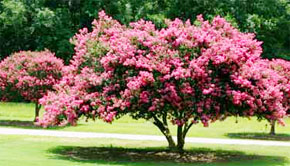 Flowering annuals also respond well to deadheading. Snip off old flowers and flower spikes before they have an opportunity to form seed. Allowing annual flowers to set seed can shorten their blooming season considerably.
Flowering annuals also respond well to deadheading. Snip off old flowers and flower spikes before they have an opportunity to form seed. Allowing annual flowers to set seed can shorten their blooming season considerably.
Inspect your lawn and shrub plantings frequently in order to identify pest problems as early as possible. The most severe damage from pest insects normally begins in July. Be on the lookout for chinch bugs in St. Augustine grass; spittlebugs in centipede grass; sod webworm in all lawns-especially new ones; lacebug and caterpillars on azaleas; whiteflies on gardenia and spider mites on lots of different types of shrubs.
Sod webworms often attack lawns in the summer. They eat the grass blades producing areas that look as if they have been mowed too short. Close inspection will reveal that the blades have not been cleanly cut as with a mower blade but have been chewed along their edges and tips. These caterpillars feed at night and rest during the day down among the runners and in the thatch.
 Once an insect pest is found, evaluate the damage and determine if control is necessary. If it is, choose the least toxic option. If only a few caterpillars are found, hand picking might be the choice. Aphids and spider mites can often be controlled by spraying with an insecticidal soap solution. Chemical insecticides are sometimes required. Before choosing one be sure that the insect pest has been properly identified and that the insecticide is labeled for that purpose For vegetable gardeners that have problems with nematodes, soil borne diseases and extensive weed problems, July is a great time to try soil solarization.
Once an insect pest is found, evaluate the damage and determine if control is necessary. If it is, choose the least toxic option. If only a few caterpillars are found, hand picking might be the choice. Aphids and spider mites can often be controlled by spraying with an insecticidal soap solution. Chemical insecticides are sometimes required. Before choosing one be sure that the insect pest has been properly identified and that the insecticide is labeled for that purpose For vegetable gardeners that have problems with nematodes, soil borne diseases and extensive weed problems, July is a great time to try soil solarization.
Prepare the soil as you normally would for a vegetable garden including adding organic matter. Moisten the area and cover with clear plastic, not black plastic. Clear plastic will produce the highest temperatures. Be sure to weigh down the edges of the plastic so that it doesn’t blow up. Allow the soil to bake in the sun for four to six weeks. The sun will raise the soil temperature high enough to kill many soil borne problems.
Tip of the Week: The nice thing about tomatoes is that you have the option of harvesting when the fruit is green if needed. Tomatoes will ripen indoors at room temperature. To ensure even ripening, place the tomato with the stem up. The ideal time to harvest tomatoes is when they are fully colored but still firm.
In general, it is best to harvest vegetables early in the mornings while the moisture content is higher. The overall quality will quickly diminish as vegetables are exposed to hotter temperatures later in the day.
Free Meals Available At The Molino, Century And Main Libraries
July 6, 2018
Free summer meals continue to be available at the libraries in Molino, Century and downtown Pensacola.
 The meals are available through a partnership with West Florida Public Libraries and Feeding the Gulf coast through Friday, August 3 for children 18 and younger.
The meals are available through a partnership with West Florida Public Libraries and Feeding the Gulf coast through Friday, August 3 for children 18 and younger.
Meals are available as follows:
– Molino Branch Library, 6450-A Highway 95A : Monday-Friday, breakfast from 9-10 a.m. and lunch from noon to 1 p.m.
– Century Branch Library, 7991 N. Century Blvd: Tuesday-Friday, lunch from noon to 1 p.m.
– Pensacola Library, 239 N. Spring St.: Monday-Friday, breakfast from 9-10 a.m. and lunch from noon to 1 p.m.
Pictured: Summer meals at the Century Branch Library. Photos for NorthEscambia.com, click to enlarge.
So This Beaver Heads Down To The Liquor Store On Highway 29…
July 3, 2018
A larger beaver was spotted alongside Highway 29 at Old Chemstrand Road, right in front of a liquor store, and it’s getting a lot of attention (and a lot of bad puns) on social media. Rick Littlefield said he was surprised to see the beaver, and it retreated into the drainage ditch shortly after these photos. Other local residents say they have seen beavers by the busy highway before. Photos courtesy Rick Littlefield for NorthEscambia.com, click to enlarge.
New Little Free Library At Cantonment Park
July 2, 2018
There’s a new Little Free Library in Cantonment. Ascend Performance Materials donated the new library at Carver Park on Webb Street.
The Little Free Library concept is simple — anyone from the community may borrow a book or add a book to the library. Anyone taking a book or two from library does not need to return that exact book, and there are no due dates.
Courtesy photos for NorthEscambia.com, click to enlarge.


